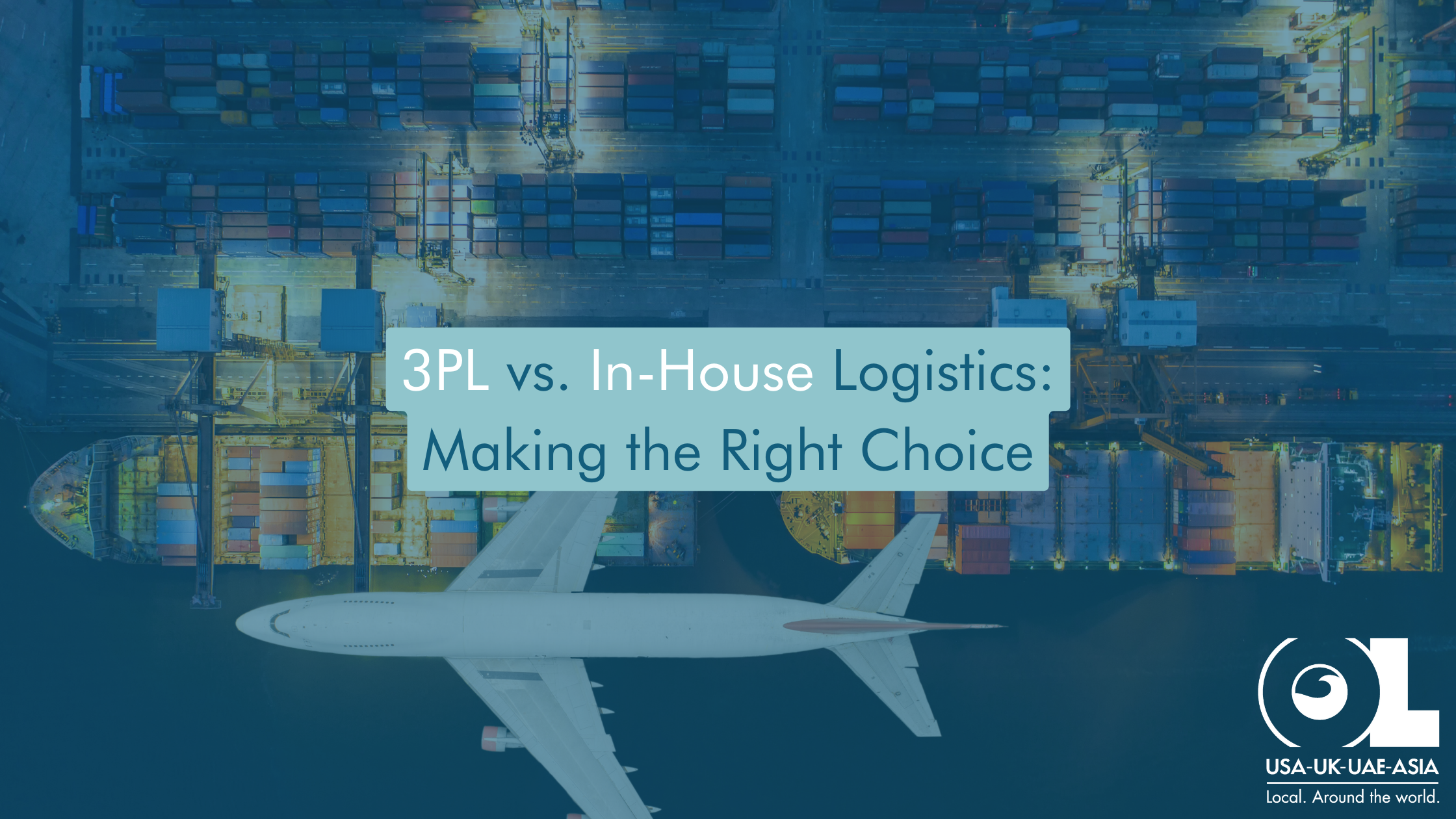Making the choice between Third-Party Logistics (3PL) and in-house logistics is a pivotal decision in the world of supply chain management. It’s a decision that can have a profound impact on the efficiency, cost-effectiveness, and overall success of your business operations. In this segment, we’ll delve a bit deeper into the importance of this decision while maintaining a professional yet approachable tone.
The Crossroads of Logistics
Imagine your business as a complex network of interlocking pieces, each representing a crucial aspect of your supply chain. From sourcing raw materials to delivering finished products into the hands of your customers, each step in this intricate dance must be executed seamlessly for your enterprise to thrive. This is where the choice between 3PL and in-house logistics comes into play, a decision that stands as a crossroads in your journey toward supply chain excellence.
Why This Choice Matters
Now, you might be wondering, “Why is this decision so crucial?” The answer lies in the very essence of modern supply chain management. In today’s highly competitive and rapidly evolving business landscape, the efficiency and flexibility of your logistics operations can either propel your business forward or hold it back.
Let’s break it down:
- Efficiency: A streamlined, efficient supply chain reduces costs, minimizes delays, and enhances customer satisfaction. It means you can respond promptly to market fluctuations and consumer demands.
- Cost-Effectiveness: The logistics segment often represents a significant portion of a company’s operational expenses. Choosing the right logistics model can help you optimize costs without compromising service quality.
- Expertise: Supply chain logistics is a specialized field. It involves intricate planning, technology utilization, and regulatory compliance. Having experts in your corner can make all the difference.
- Scalability: The ability to scale your logistics operations up or down as needed is vital for growth and adaptation to market changes.
- Risk Mitigation: Unexpected disruptions are an unfortunate reality in the world of logistics. How effectively you handle these challenges can significantly impact your bottom line and reputation.
1. Efficiency: A Streamlined Supply Chain
Efficiency is the heartbeat of your supply chain. It’s about orchestrating each step with precision, ensuring that products flow seamlessly from suppliers to customers. A streamlined, efficient supply chain brings forth several advantages:
- Cost Reduction: Efficiency minimizes waste and excess, leading to cost savings that can be reinvested in other areas of your business. Whether it’s reducing excess inventory or optimizing routes for transportation, efficiency trims the fat from your budget.
- Minimized Delays: Delays in your supply chain can be costly and frustrating, affecting both your bottom line and customer satisfaction. Efficiency ensures that products reach their destinations on time, reducing disruptions and bottlenecks.
- Enhanced Customer Satisfaction: When your supply chain hums along smoothly, your customers benefit. They receive their orders promptly, encounter fewer errors, and enjoy a consistent and reliable experience. This not only fosters loyalty but also encourages positive word-of-mouth.
- Responsiveness to Change: The business landscape is dynamic, with market fluctuations and consumer demands constantly evolving. An efficient supply chain equips you to adapt swiftly, seize opportunities, and navigate challenges.
2. Cost-Effectiveness: Optimizing Expenses
Logistics often represents a significant chunk of a company’s operational expenses. The choice between 3PL and in-house logistics can significantly impact your cost-effectiveness.
- 3PL Cost Savings: Outsourcing logistics to a 3PL provider can lead to significant cost savings. They can leverage their resources, infrastructure, and expertise to optimize your supply chain, often at a lower cost compared to maintaining in-house logistics operations.
- Reduced Capital Expenditure: Managing in-house logistics requires substantial investments in facilities, equipment, and personnel. 3PL providers can help you avoid these capital expenditures, freeing up resources for other critical aspects of your business.
- Flexible Pricing Models: Many 3PLs offer flexible pricing models, allowing you to pay for the services you need, when you need them. This can lead to cost-efficiency by avoiding unnecessary fixed costs.
3. Expertise: The Power of Specialization
Supply chain logistics is a specialized field that demands a deep understanding of intricate planning, technology utilization, and regulatory compliance. Having experts in your corner can make all the difference:
- 3PL Expertise: 3PL providers are specialists in logistics. They bring a wealth of knowledge and experience to the table, staying up-to-date with the latest industry trends and best practices.
- Access to Technology: 3PLs often invest in state-of-the-art logistics technology, which can provide you with better visibility, real-time tracking, and data analytics capabilities that are essential for making informed decisions.
- Regulatory Compliance: Navigating the complex world of international shipping and compliance requirements can be a daunting task. 3PLs are well-versed in these regulations, ensuring that your logistics operations stay compliant and avoid costly penalties.
4. Scalability: Adapting to Market Changes
The ability to scale your logistics operations according to market changes is pivotal for your business’s growth and adaptation. A scalable logistics model offers several advantages:
- Flexibility: Scalability equips you to respond to both seasonal fluctuations and unexpected spikes in demand without overcommitting resources during quieter periods.
- Market Expansion: If you’re looking to expand into new markets, a scalable logistics solution can help you do so seamlessly, without the need for significant capital investments.
5. Risk Mitigation: Navigating the Unforeseen
In the world of logistics, disruptions are inevitable. Unexpected events, from natural disasters to supply chain interruptions, can impact your operations. How effectively you handle these challenges can significantly impact your bottom line and reputation:
- 3PL Risk Management: Many 3PLs have established risk mitigation strategies and contingency plans in place. They can help you navigate disruptions more effectively, reducing downtime and minimizing financial losses.
- Insurance and Liability: 3PLs often provide insurance coverage, mitigating potential financial risks associated with lost or damaged goods during transit.



